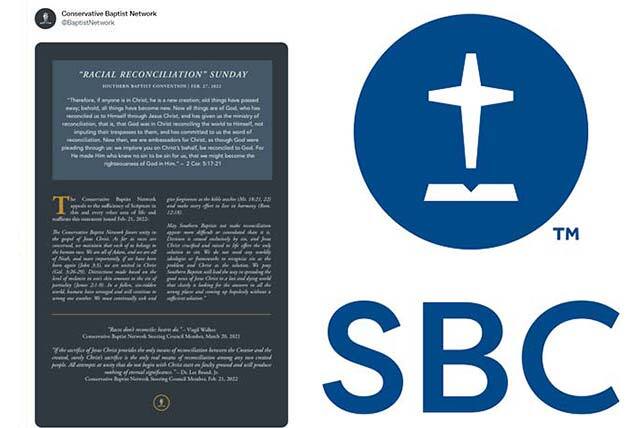Greenway had hosted SBC president Ed Litton for a chapel session at SWBTS shortly after Litton was accused of sermon plagiarism in 2021, a move which continues to draw criticism from those who believe Litton should have resigned.
“There are no racists in the SBC. Racial reconciliation isn’t controversial,” Buck had also tweeted on Sunday. “The difference is some of us believe it’s been accomplished in Christ through the Gospel, while the approach of others is to follow a worldly model that is inherently divisive.”
Buck later said, “The truth is I know more race baiters in the SBC than I do actual racists.”
RELATED: TN Baptist Convention: Resolution Condemning Plagiarism Is Not Targeting Litton—But Is Related
Numerous other SBC pastors and leaders were apparently baffled by the opposition to the long held tradition of Racial Reconciliation Sunday. Adam Blosser of Goshen Baptist Church Spotsylvania, VA tweeted, “If racial reconciliation is now going to be controversial in the SBC, I’m out. Expel the racists, or I’m done.”
“If the CBN is opposed to the SBC observing a Racial Reconciliation Sunday, they would also oppose celebrating Black History or an MLK celebration,” replied Dwight McKissic, Senior Pastor of Cornerstone Baptist Church in Arlington, TX. “How do you tell [African American] churches you’re unwelcome in the SBC unless you think like CBN churches? Oppose SBC Racial Reconciliation Sunday!”
The controversy that has arisen over Racial Reconciliation Sunday in recent days is indicative of the fact that the issue of race is far from settled in the denomination—despite what has been argued by those who oppose the commemoration.
Nevertheless, whether it is engaging in debates over CRT, addressing a lack of diversity in denominational leadership, or refuting outright denials that a legacy of racism still exists in the SBC and must continue to be reformed, there are many within the denomination who are intent on addressing the lingering effects of racism in the SBC in order to continually pursue a greater degree of racial reconciliation.
RELATED: As America Celebrates the Legacy of MLK, Evangelicals Remain Divided on Race

